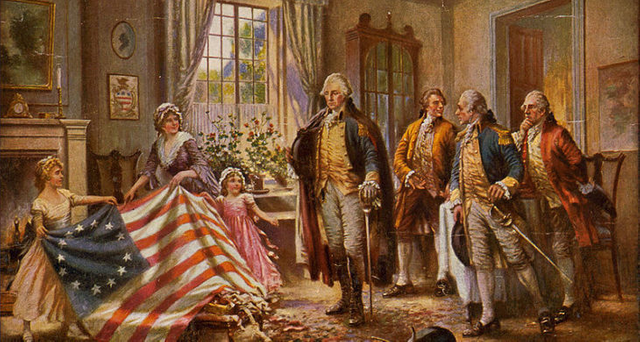
History is my first love. Starting at age of 8, I have read history books – about ancient Egypt, Greece, and Rome, medieval and modern Europe, England, Ireland, France, Germany, Russia, Spain, books about the Renaissance and Reformation, Middle Eastern history, history of the Jews, history of the Arabs, the history of Asia, Africa, Latin America, the history of language, the history of philosophy, the history of science, art history, and, of course, American history. I realized long ago that I could probably become interested in any subject at all if I approached it historically.
At some point I noticed not only that many people don’t love history or care about it, but that many, if not most, people don’t THINK historically. They don’t care what the United States WAS. They’re not interested in the trajectory of American history or what the nation has gone through to get to where we are today. They’re not concerned with the country’s founding principles or its founding fathers. Their focus, unlike my own, starts with the present, not with the past. And, therefore, many people imagine that, in the future, this country can be made to resemble any other country – that the U.S. can become like Sweden, for example… No. That ain’t gonna happen. Our pasts are different. Our present is different. And our future will be different. I’ve been to Sweden a couple of times. Impressive country. Impressive people. But Sweden is not America. Swedes and Americans are not interchangeable.
The United States of America is a unique nation in world history: our story of growth and expansion; our race relations; our ethnic mix; our religious origins, religious diversity, and religious freedom; our economic opportunities; our governmental structure and political parties. We are distinct and distinctive. And, yes, I will say it: The United States of America is a great nation, a big, beautiful nation, full of promise and problems.
How we Americans view the United States of yesterday and today will largely determine our tomorrow. If we see the U.S. as a great and good nation, and we relate to it as such, that will make for a different future than if we see it as a fundamentally mean-spirited, corrupt, war-mongering, racist nation. If we condemn our past, if we fail to take pride in our nation’s struggles and accomplishments, we will be diminished by that condemnation, and our path forward will be narrower, harder and more contentious than it already is. . .